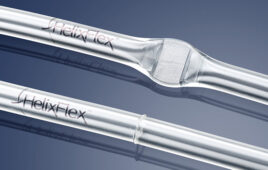
Cannabix Technologies Inc. management and University of Florida chemists have confirmed the ability to specifically detect tetrahydrocannabinol (THC) at standard temperature and pressure using our unique FAIMS cell coupled with mass spectrometry (FAIMS-MS).
They have successfully isolated THC and THC-related by-products in controlled simulated breath samples, with the current FAIMS-MS configuration demonstrating THC detection limits which are at least 10 times more sensitive than previously reported in the exhaled breath literature. The company also reports that it has been evaluating the feasibility of detecting other volatile compounds of interest using FAIMS-MS with promising preliminary results for cocaine models in simulated breath samples.
Development of the Cannabix instrument is rapidly advancing. Many proprietary components, such as a high-voltage generator, non-radioactive ionization source, and array detector are being integrated with the novel High-Field Asymmetric Waveform Ion Mobility Spectrometry (FAIMS) cell to provide the most technologically advanced FAIMS-based instrument in the world.
Dr. Raj Attariwala, Cannabix’s Chief Scientific Officer, states, “Development of a standalone FAIMS based device for trace detection of THC in breath is progressing well. With the expertise of the Yost lab at UF, we have demonstrated the unique ability to have a device which allows real time analysis of exhaled breath without any cumbersome extraction techniques. Our recent analysis of the presentations at PITTCON affirms our belief that Cannabix is developing one of the most advanced and sensitive real time THC specific breath detection devices for roadside use by law enforcement.”
Kal Malhi, President of Cannabix stated, “Our recent visit to the University of Florida and the presentations at PITTCON reaffirm our belief that Cannabix is developing the best technology in the field of detection of THC in exhaled breath. Our FAIMS-MS device is now recognized as a very accurate and highly sensitive device and we are moving quickly towards miniaturization of the bench top device. Agreements are in place with parts suppliers and parts required to build the portable device are now on order and we expect to have a portable FAIMS-MS device for field testing in the coming months.”
Follow us on Twitter and Facebook for updates on the latest pharmaceutical and biopharmaceutical manufacturing news!




